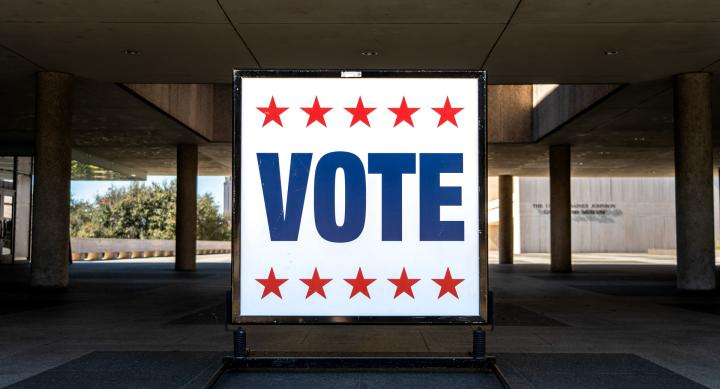
AUSTIN, Texas— Latino voters in the United States are now more driven by healthcare and economic issues than immigration, marking a major shift in political priorities over the past three decades. A new peer-reviewed study from The University of Texas at Austin, published last week in the Public Policy & Aging Report, shows that healthcare has emerged as a significant mobilizing factor for Latino voters, with 32% of respondents citing healthcare as their top concern. This trend, coupled with a decrease in the importance of immigration, particularly among younger generations, showcases the changing priorities within this key voting demographic.
The study analyzed voter preferences across the U.S. through three national surveys: the 2006 Latino National Survey (LNS), the 2016 Collaborative Multiracial Post-Election Survey (CMPS), and the 2022 Univison-LBJ Latino Presidential Poll. Using an open-ended question format to capture the most pressing issues, the researchers observed trends over time in shifting priorities.
The data shows that immigration was the primary concern for 29% of respondents in 2006 and 30% in 2016, but only 22% in 2022. This indicates a notable decline in its significance. Meanwhile, healthcare has become increasingly important, with 9% of respondents in 2006, 24% in 2016, and 32% in 2022 identifying it as their primary concern. The economy has also gained significance, rising from 12% in 2006 to 39% in 2016 and 52% in 2022.
The research points to generational differences in issue prioritization. While older voters still place a high priority on immigration due to stronger ties to their countries of origin, younger Latino voters, who are more likely to be born in the U.S, are increasingly concerned about healthcare.
“The debate over the Affordable Care Act, the very rapid increase in health care costs and the fact that Latinos have the lowest rate of insurance coverage in the country have made the issue more salient. Generational status mattered,” LBJ School professor and study co-author Jacqueline Angel said. “Young Latino voters voiced concern about the lack of affordable coverage while older voters expressed the importance of regularizing immigration status. While immigration concerns older Latino voters, the responses indicate that healthcare (Medicare) is a high priority issue, primarily because of the crushing burden of medical debt. Our findings underscore the salience of healthcare reform for this population.”
According to the researchers, the growing concern about healthcare is tied to the difficulties many Latinos face in accessing affordable care, as they are disproportionately uninsured or underinsured. The study shows that since 2016, Latino voters prioritizing healthcare are increasingly more likely to vote. This rise in electoral engagement is particularly strong among younger voters, highlighting the growing importance of healthcare as a key issue driving political participation within this demographic.
The research offers important insights into the changing political landscape among Latino voters, with healthcare and the economy becoming central issues. These findings highlight the need for policymakers and political leaders to address the varied concerns of the Latino community, especially those related to domestic matters such as healthcare and economic stability.
###
Media contact: Victoria Yu, Chief Marketing & Communications Officer - victoriajyu@austin.utexas.edu

